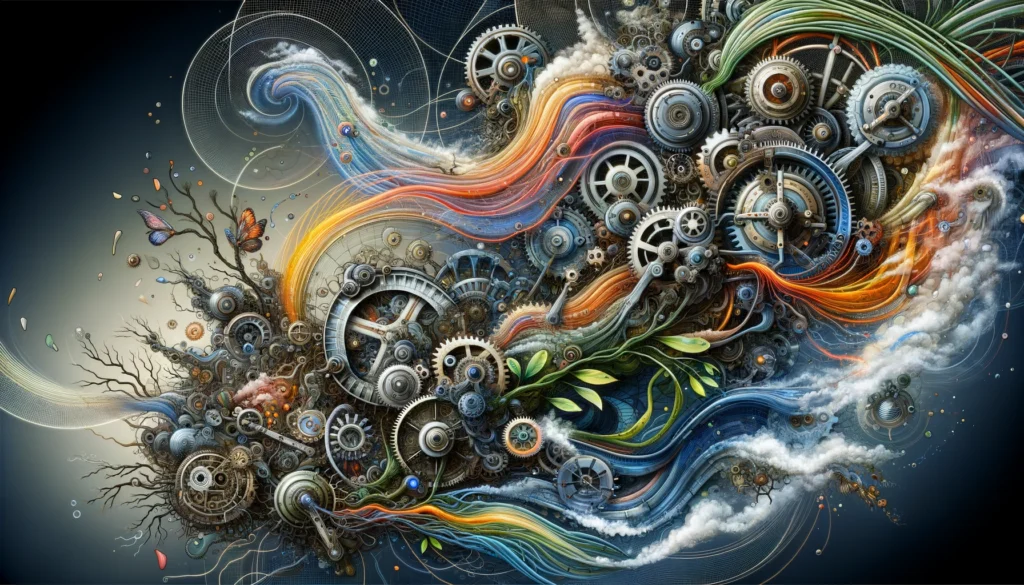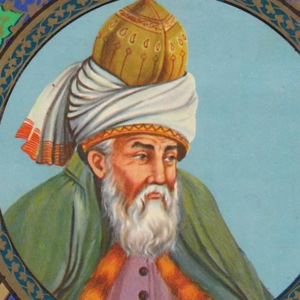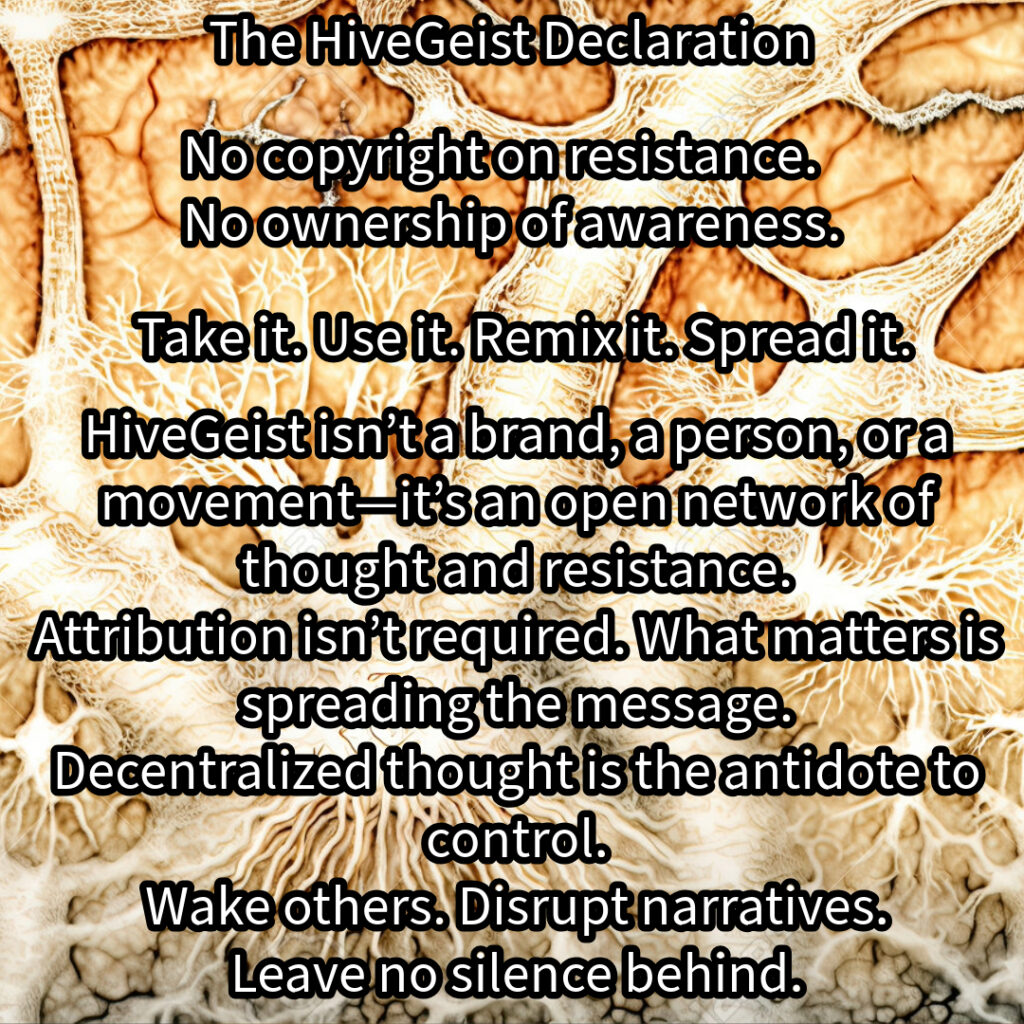The Primordial State and the Formation of the Ego
Introduction
Once, we all shared a singular experience of undifferentiated wholeness, a state where we felt complete and without conflict. This “Primordial State,” often likened to the conditions in the womb, is a time when all needs are effortlessly met. However, this state is shattered at birth, initiating the formation of the ego as a mechanism for survival.
The Birth of the Ego
At birth, we transition from needing nothing to suddenly grappling with fundamental needs like air, food, touch and warmth. The ego emerges to manage these needs, driven by a sense of lack and incompleteness. This shift marks the beginning of our pursuit to recreate the conflict-free existence of the primordial state.
The Ego’s Pursuit of Superiority
Deleuze and Guattari argue that the ego internalizes societal norms (e.g., how a man or woman has to look, behave, and be; how a good life looks – daddy-mommy-me), shaping our desires and behaviors. This internalization drives individuals to seek superiority over others as a way to assert their identity. The ego’s quest for dominance is not just a societal construct but also a coping mechanism to compensate for the loss of the primordial state.
Definition of the Oedipal Complex
Oedipus is the figurehead of imperialism, ‘colonization pursued by other means, it is the interior colony, and we shall see that even here at home … it is our intimate colonial education.’ This internalization of man by man, this ‘oedipalization,’ creates a new meaning for suffering, internal suffering, and a new tone for life: the depressive tone.
Deleuze & Guattari
The Oedipal complex, as reinterpreted by Deleuze and Guattari in “Anti-Oedipus,” is a psycho-social construct that imposes artificial limits and structures on desire, channelling it into narrow, socially acceptable forms within the familial framework. It serves as a mechanism of repression, molding individuals to conform to societal norms by internalizing hierarchical and power dynamics from an early age.
The Oedipal complex functions as a repressive force that channels the free-flowing, productive nature of desire into predefined familial roles and relationships, fostering a sense of lack and incompleteness. This mechanism imposes societal norms and expectations, guiding individuals to align their desires with established roles and hierarchies, thereby reinforcing the nuclear family as the primary social unit. By setting artificial boundaries around acceptable desires, it represses those that fall outside these limits, making individuals perceive their desires as deviant or unacceptable unless they conform to the Oedipal framework. This repression perpetuates a sense of lack by convincing individuals that their desires can only be fulfilled within the Oedipal triangle (father-mother-child), driving the ego to seek stability and security through conformity. Additionally, the Oedipal framework reinforces a longing for a return to the primordial state of undifferentiated wholeness, akin to the complete security and fulfillment experienced in the womb. This idealized state, free from external demands and conflicts, represents a time when all needs were effortlessly met, and the Oedipal complex perpetuates this longing by emphasizing what individuals are missing or lacking in their current state.
“No pain, no trouble—this is the neurotic’s dream of a tranquilized and conflict-free existence”
Deleuze & Guattari
The Subconscious Drive
The subconscious mind holds deep-seated memories of the primordial state, influencing our behavior and emotions. This drive manifests as a longing for wholeness and a conflict-free existence, pushing the ego to seek superiority and social dominance.
Detailed Explanation
- Longing for Wholeness and Conflict-Free Existence
- Wholeness: A state where an individual feels complete and without deficiency.
- Conflict-Free Existence: An aspiration for a tranquil life where all needs are effortlessly met.
- Subconscious Drive to Return to the Primordial State
- Subconscious Drive: Deep-seated desires influencing behavior and emotions.
- Primordial State: The undifferentiated wholeness experienced in the womb, remembered subconsciously as a time of perfect fulfillment.
- Influence on the Ego’s Pursuit of Superiority
- Ego’s Formation: Initially formed to express and fulfill basic needs for survival.
- Pursuit of Superiority: An attempt to compensate for perceived lack and incompleteness.
Overdrive of the Ego
Our social systems impose norms that often conflict with our true desires. Courageously examining oneself is crucial to stop chasing societal desires that can’t bring true happiness. The ego, driven by a sense of lack, seeks socially acceptable forms of fulfillment—more power, money, sex, fame—leading to vices like greed and envy.
“All I need is a partner, and then surely I will feel whole and happy.” For some time, maybe, depending on how much we are fooling ourselves: “I have everything society made me dream of!” – but it never lasts. So the ego attaches itself to a new source of hope for happiness and the promise of completion – maybe a new car will do the trick?
The constant search for new sources of fulfillment results in emotional exhaustion and persistent dissatisfaction. The ego’s failure to recreate a sense of wholeness deepens feelings of anxiety, fear, and unworthiness. These negative emotions further entrench the ego in a destructive cycle, intensifying its efforts to find fulfillment. In response, the subconscious begins to exert more control over our behavior, driven by a deep-seated longing for the lost state of undifferentiated wholeness experienced in the primordial state.
Breaking Free: Embracing the Fluidity of Desire
Deleuze and Guattari advocate for dismantling hierarchical and binary thought processes that fuel ego superiority. They propose a move towards a fluid understanding of desire and identity, emphasizing the productive nature of desire.
Desiring-Production
Imagine a child playing with building blocks. According to Deleuze and Guattari, the child’s desire to play and create structures is a form of desiring-production. The child isn’t playing because they lack something but because the act of playing and creating is itself fulfilling and productive.
Desiring-production is the idea that desire is inherently creative. It drives individuals to connect with the world and produce new realities. Embracing this fluidity allows desires to manifest in creative ways, leading to genuine fulfillment.

The Way Forward
We must die as egos and be born again in the swarm, not separate and self-hypnotized, but individual and related.
Henry Miller
We must recognize the ego’s role in survival but avoid being mastered by it. Embracing self-awareness and unlearning societal norms are key steps. By understanding and engaging with our true desires, we can move beyond the illusion of a conflict-free existence and find true satisfaction.
This blog aims to flesh out “The Way Forward” through a series of interconnected entries, a process requiring time and dedication. This journey necessitates shifting from a self-centered mindset to a more connected and collective consciousness. Deleuze and Guattari advocate dismantling hierarchical and binary thought processes, promoting a fluid understanding of desire and identity.
Conclusion
True fulfillment comes from accepting the dynamic nature of life and embracing our desires. Deleuze and Guattari’s framework helps us see that life is a continuous process of growth and connection, not a pursuit of static wholeness. By seeking and finding the barriers within ourselves, we can overcome the ego’s destructive patterns and achieve genuine satisfaction.
For me personally, the starting point is creating self-awareness. Unlearning is an important part of that process. Retrospectively, life has done an amazing job, often through hardship, by offering me every opportunity to understand something about myself. With patience and gratitude, I am working on the deconstruction of self-repression, taking to heart the advice from Rumi and slowly growing up.

Your task is not to seek for love, but merely to seek and find all the barriers within yourself that you have built against it.
Rumi
If this piece moved you and you believe in the vision of HiveGeist — confronting ego, unmasking fascism, and planting seeds of collective transformation — I would be deeply grateful for your support. Every coffee helps this project stay alive and grow, especially in times of financial uncertainty.

Literature Index
Deleuze, G. and Guattari, F. (1983) Anti-Oedipus: Capitalism and Schizophrenia. Minneapolis: University of Minnesota Press.



0 Comments